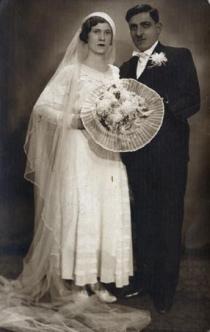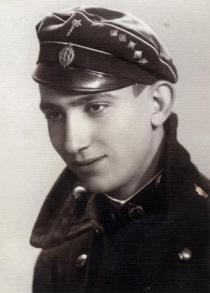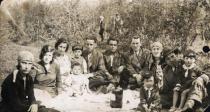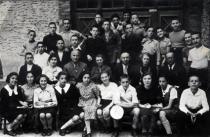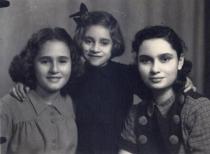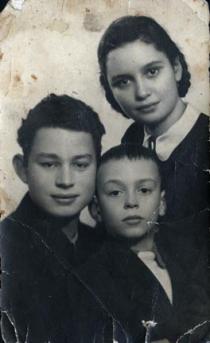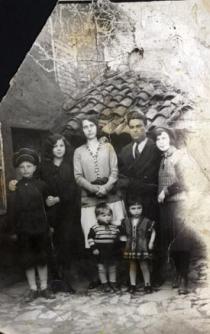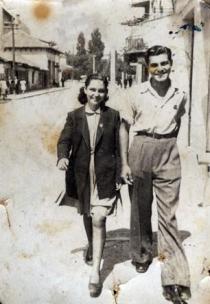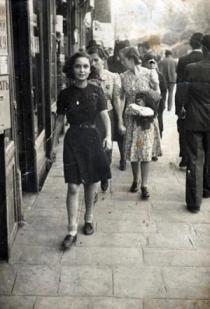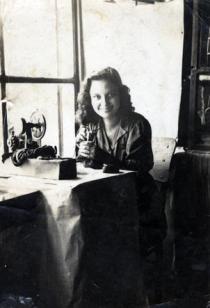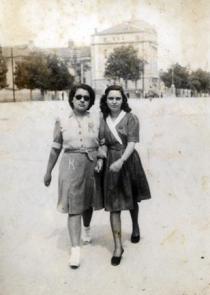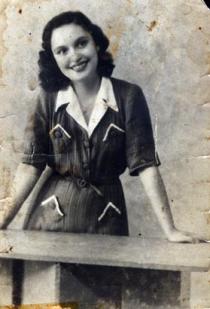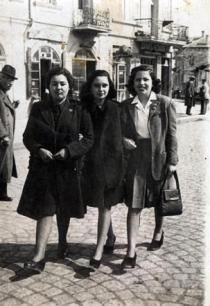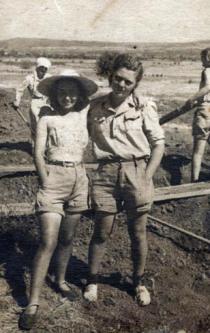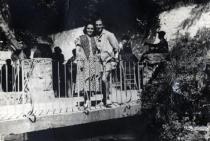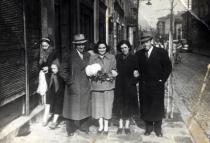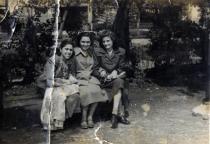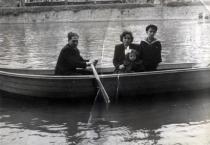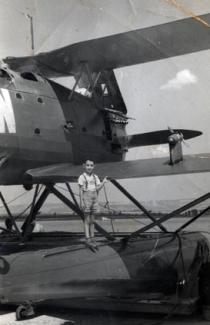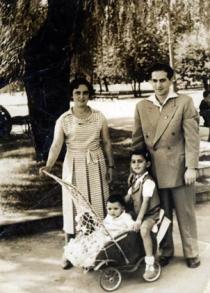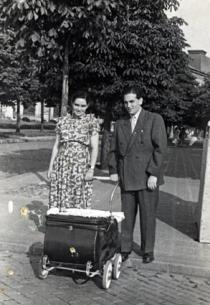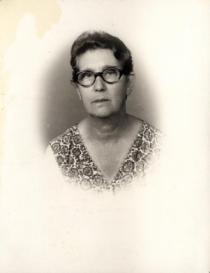This picture was taken during the internment in Kyustendil in 1943. It is me sewing on the special machine for stockings. That was a small workshop, where the owner let me work. I don't remember if Jews were allowed to work at the time, but I recall it was relatively easy for men to find some kind of a job. My grandfather Pinkas Danon, who was also interned to Kyustendil, worked in a sewing workshop. My mother Solchi Levi couldn't find a job. She used to come to the workshop and help me mending the ladders.
In 1943 I was fifteen years old and I was in the seventh class at school (one year before high-school graduation), when my family was interned. Before we left our kind neighbors gave us one of those special machines for mending ladders. In fact, this machine turned out to be our salvation in the years of our internment. My family was forced to move to the town of Kyustendil, while the family of my uncle Israel Danon had to go to Stara Zagora. Just before we had to leave my uncle had given us some money which we locked in tin cans. That was the only way to carry the money secretly. This money was insufficient for the family, though.
At first, we were accommodated in the local Jewish school. After a while, the local Jews came to us and one family invited us to live at their place. That was the family of Baruh Alkalai, who lived in a large, beautiful house. He offered one of the rooms where we could stay. Once again we were lucky to live in a nice house. There was another small building in the backyard, which was meant to be a summer kitchen. There were two more spare rooms, which we were allowed to sleep in. This local family helped my grandfather find a job in a tailor workshop in the town. Although it was forbidden by the law for the interned Jews to work, men were frequently hired. I found a job with another sewing workshop. I went to the Bulgarian tailor with my mother and she told him I was able to sew stockings with that special machine. He agreed to have me there and allowed me to take one of the seats in the workshop where I could place my machine. I had to pay a fee for working there on my machine. The Jewish children weren't allowed to go to school so I started working. It was an interesting experience for me, though. There were times when women used to bring six pairs of torn stockings and offered me two of them instead of payment. It was war then and people had no cash.
My mother was an excellent housewife, which helped us survive. She was extremely ingenious. For example, plums were very cheap in Kyustendil. So she prepared jam out of them. She could also make a potato cake. She boiled the potatoes, and then she put them in a tray and spread plum jam on it. She always managed to do something and feed us. She continued to mend socks as well. That was the way we earned our living. I will never forget our kind neighbors in Sofia, who helped us in this ordeal. Along with that, we had left some of our belongings to our landlord in Sofia, Stoyan Kosturkov. He told us to write him where we were accommodated. He wrote us back that he wanted to visit us and bring our stuff as well as some money and food. He was an amazing person. I think after our exile was over my mother went to see him only once and later we never met. Now I have a great desire to find his relatives.
We didn't have many close friends in Kyustendil. Sometimes I was disturbed by naughty young men in the streets who were trying to tease me. But it was not because of the fact I was Jewish, just for the sake of joking. Generally, we had no problems with the local people. Near the Alkakai's house there was a bakery. Maybe we didn't have enough space with the Alkalais and my mother talked to the owners of the bakery, who were Bulgarians, and they said we could move to their house. The man from the Bulgarian family was called Simo. He and his wife were very kind to us and they often treated us with muffins. In the house we had a room and a separate summer kitchen. My grandfather had a bed in the kitchen and the other room was for Mum, my brother and me - just next to the bakery. The next-door house belonged to another Bulgarian family and there was another Jewish family living with them. The Jewish children were a brother and a sister, so that girl Reni became a friend of mine. Still, our parents weren't close at all. Her family was of a higher establishment. The father had graduated in Germany - he was either an economist or an accountant. They had no baggage, but they had a gramophone and record disks. That was the way I had my first lessons in music.

